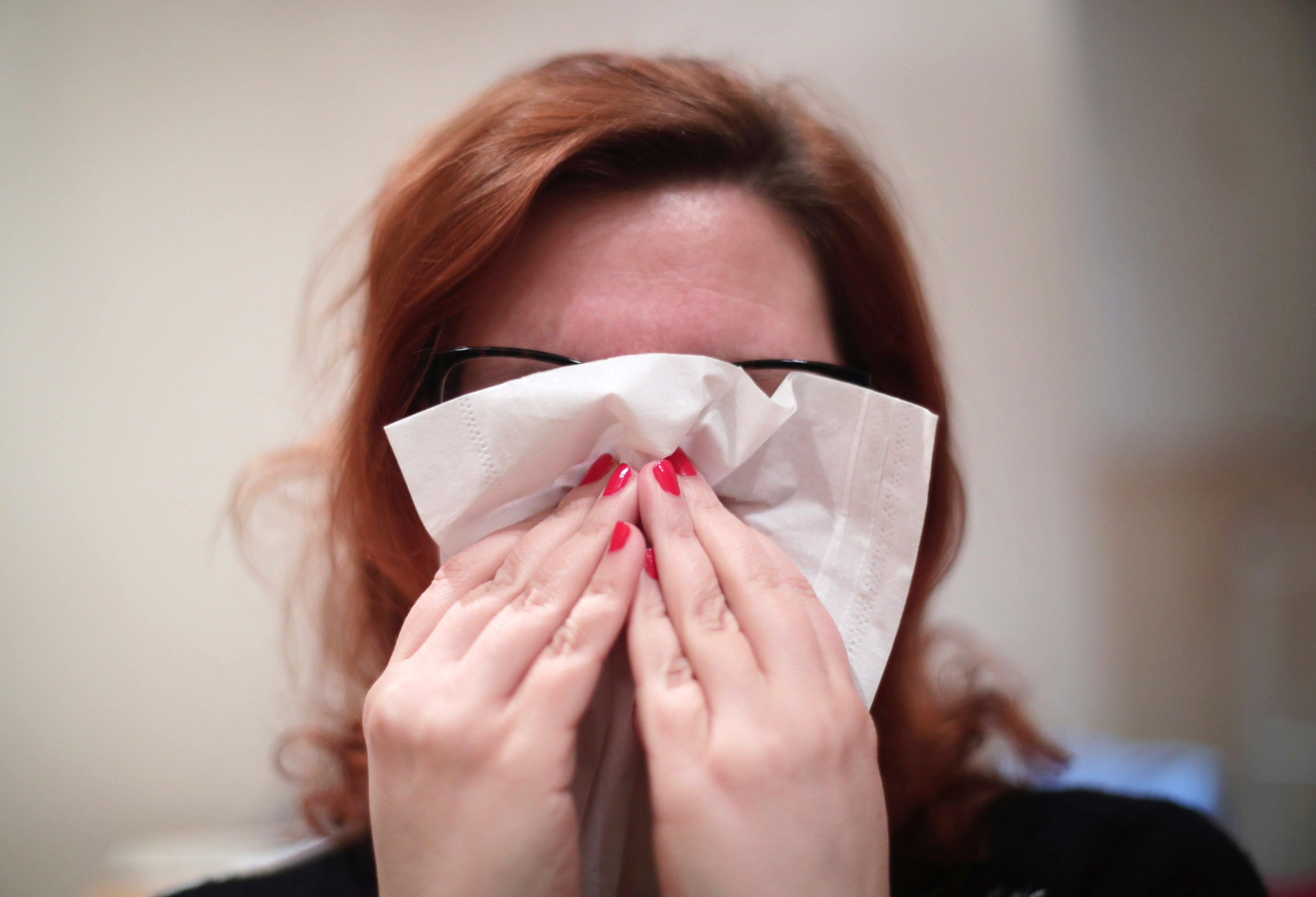Some hay fever medicines in short supply across the UK
Royal Pharmaceutical Society president, Claire Anderson, said alternatives were available.

Your support helps us to tell the story
From reproductive rights to climate change to Big Tech, The Independent is on the ground when the story is developing. Whether it's investigating the financials of Elon Musk's pro-Trump PAC or producing our latest documentary, 'The A Word', which shines a light on the American women fighting for reproductive rights, we know how important it is to parse out the facts from the messaging.
At such a critical moment in US history, we need reporters on the ground. Your donation allows us to keep sending journalists to speak to both sides of the story.
The Independent is trusted by Americans across the entire political spectrum. And unlike many other quality news outlets, we choose not to lock Americans out of our reporting and analysis with paywalls. We believe quality journalism should be available to everyone, paid for by those who can afford it.
Your support makes all the difference.Some hay fever medicines are in short supply across the UK owing to the lack of a key ingredient.
Stocks of chlorphenamine maleate, the active ingredient in brands such as Piriton, have been affected, although other hay fever medicines are available.
A spokeswoman for the pharmacy chain Boots said only four out of 90 hay fever products were affected and there was good availability of other hay fever items.
She said: “At Boots we have a large range of hay fever relief medicines, with good availability of stock overall in our stores and online.
“There are a very small number of lines that are currently out of stock due to a current, industry-wide shortage of the active ingredient chlorphenamine maleate.
“However, we are expecting this to be resolved soon and new deliveries are expected in the coming weeks.”
Other medication using cetirizine hydrochloride or loratadine is still available widely in pharmacies across the country
Other hay fever medicines such as Piriteze use cetirizine hydrochloride and are still in plentiful supply.
Royal Pharmaceutical Society president Claire Anderson said: “Chlorphenamine maleate is just one component of a few hay fever tablets, including Piriton, which is not a first line choice for treating hay fever for adults as it is more likely to make patients drowsy.
“Other medication using cetirizine hydrochloride or loratadine is still available widely in pharmacies across the country, and fexofenadine is also now available on general sale at pharmacies this year for the first time, so patients actually have more options than ever to treat their hay fever symptoms.
“Medicines shortages are not a new problem, and is something pharmacists and pharmacy teams have to manage and deal with on a daily basis, and have done for a long time.
“This can be for a multitude of reasons, including manufacturing issues, global demand or disruption with the supply chain.
We are concerned the ongoing (HRT) shortages are incredibly distressing for those affected
“Availability of certain medicines fluctuates, and it is important to ask your pharmacist for alternatives.
“GPs, pharmacists and patient groups have called for pharmacists to be able to make minor changes to a prescription when something is out of stock – this should be considered as part of a package of measures to address future medicines supplies.”
It comes as a joint statement has been published by four medical organisations regarding ongoing hormone replacement therapy (HRT) shortages across the UK.
The Royal College of Obstetricians and Gynaecologists (RCOG), the Faculty of Sexual and Reproductive Healthcare (FSRH), the British Menopause Society (BMS) and the Royal College of General Practitioners (RCGP) said healthcare professionals and pharmacists must look at guidance on alternatives to ensure women have access to an appropriate form of HRT.
The organisations also said they support authorising pharmacists to provide women with safe substitutions for out-of-stock products.
The Government has appointed Madelaine McTernan as a new HRT tsar to tackle the widespread shortages, which include the rub-on treatment Oestrogel.
We are aware that women are sent away with prescriptions for unavailable products and end up lost in a system that is frustrating to navigate
Dr Edward Morris, president of the RCOG, said: “We are concerned the ongoing shortages are incredibly distressing for those affected.
“Society has made real progress in the past couple of years in tackling the taboos and stigma that surround menopause.
“It’s unacceptable that women are facing barriers to accessing HRT. We have joined with other medical organisations to work closely with the newly appointed HRT tsar and make sure this situation is addressed so that it doesn’t happen again.”
Dr Asha Kasliwal, president of the FSRH, said: “HRT for many women is a lifeline which helps them to effectively manage their symptoms. When they are unable to access it, this can have a profound impact on their quality of life.
“We understand that the causes of the current supply issues for some HRT products are complex.
“Alongside long-standing issues with securing sustainable supply of HRT, we are also seeing increasing demand for products.
“We are aware that women are sent away with prescriptions for unavailable products and end up lost in a system that is frustrating to navigate.
“We support authorising pharmacists to support women to substitute out-of-stock products where there are set protocols on safe equivalents agreed centrally, following the relevant guidance.”